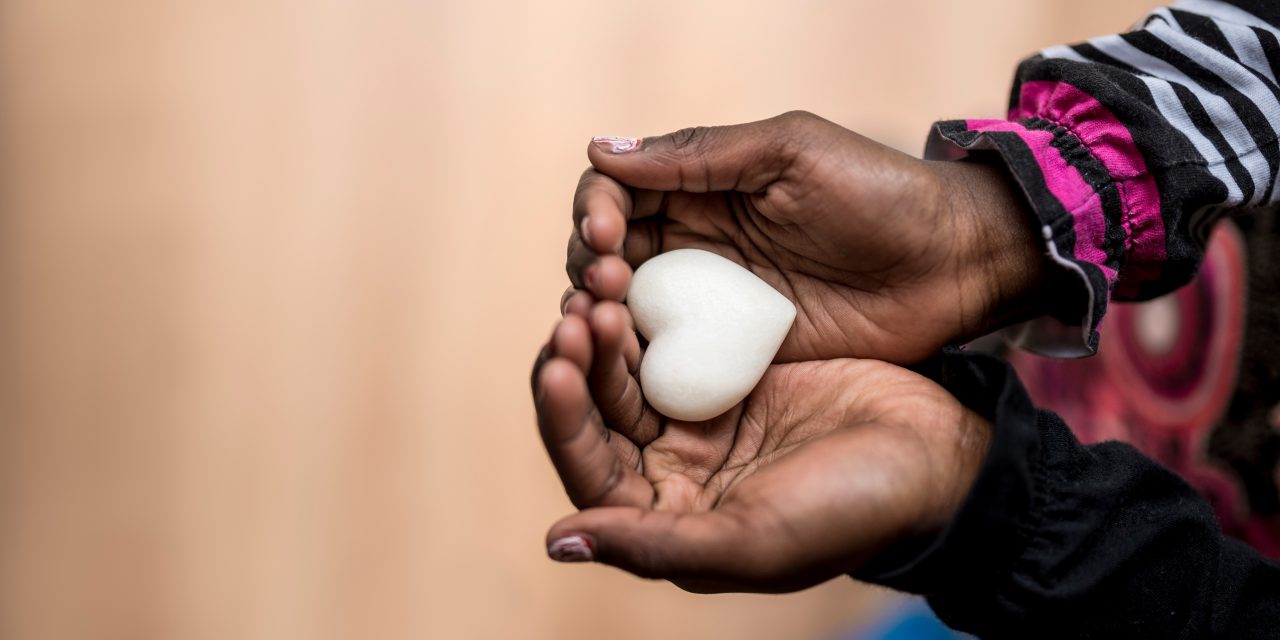Homelessness is a widely misunderstood and heavily stigmatized living condition for hundreds of thousands of people across America. In Kansas City, one organization is working to provide people experiencing homelessness with medical care, an often overlooked necessity, by bringing the care to them.
Jaynell Assmann, known as KK, founded Care Beyond the Boulevard (CBB) after learning how widespread the problem is through her volunteer work. While serving on the line at a food and clothing ministry, she noticed how much attention she drew when people learned that she was in school to be a nurse. “People kept coming to me with medical questions, and I was like, ‘Don’t they have health care?’ And I started doing a little research, and I discovered: No. Not really,” KK recalled. After learning about street medicine, she decided that she would start a clinic once she became a nurse practitioner. KK made her vision a reality just two months out of school with her first clinic at Micah Ministries.
One clinic was never going to be enough to serve Kansas City’s homeless population. Just four years ago, the organization had only a thousand dollars to work with, and KK was running CBB while holding another full-time job. Now, after the organization received a generous cash donation that allowed KK to dedicate all her time to running and expanding CBB, the organization has five full-time employees, a volunteer pool of around 300 people, and a packed schedule: around 45 clinics each month. Thanks to provider volunteers, clinics can run without requiring KK to be present at each one — and CBB takes pride in their reliable consistency, doing everything possible to ensure they run every clinic they’ve committed to.
Although the organization already had a presence in the community, the coronavirus pandemic drove them into a leadership role. They used their unique mobility to serve people and deliver PPE, and their patient population exploded as they expanded operations. In all of 2021, CBB saw 7259 visits of 2686 unique patients. In the first six months of 2022, 3057 out of 4300 total visits were unique patients — already more than the entire year of 2021. “Every single week, we see patients we’ve never seen before. Kansas City is not that big. You would think that in six and a half years, you would only be seeing the same patients, and that’s just not true,” she said. “We continue to bring new people in that we’ve never seen.” She suspects that this increase is the product of more available clinic spaces, which CBB hosts in places like churches and shower houses to be as accessible as possible, in addition to the rising numbers of people experiencing homelessness thanks to the pandemic.
A fragile path
For as catastrophic and inhumane as homelessness is, the issue rarely receives the attention it deserves thanks to numerous popular misconceptions. “People are like, ‘Oh, they just need to get a job.’ That’s great, but they have no ID, or no access,” KK said. CBB offers help with coordinated entry, which aids people in acquiring documents that are necessary to secure housing and jobs, but without a place to call their own, keeping those documents safe can be a challenge. “They get it, and then it gets stolen. I have a couple patients where I’m like, ‘Didn’t I just write a check for this last month?’ And the document was stolen already, and it’s through no fault of their own.”
Even with the necessary documents, people experiencing homelessness may face a number of employment barriers. KK described the challenges of trying to help one lady who had been on the streets for a long time try to find a job when the lady had no experience using a computer. “You can’t get a job without a computer,” KK said, “and then when COVID hit, every place was closed down where she could access those computers.”
Another gentleman who had a job as a food service worker was laid off and evicted. “He fought it in court and he won, but it was a mobile home, so the landlord moved it,” KK described. Now homeless, the man has been living in his car for two years. “This gentleman did exactly what he was supposed to do.” Now he has an eviction that makes it harder for him to get a job, and because he’s unable to pay for his cell phone, he’s losing that, too.
These stories are not unique or isolated cases of people being pushed into homelessness; most people who experience homelessness have similar stories. “Even for people who get out of homelessness or are tiptoeing on the edge, it’s one little thing that can push them right back,” said KK. For those who are fighting mental health or substance use struggles, the path to escaping homelessness is even harder. Mental health and substance use disorders are monumental challenges even for those with insurance and housing. “It’s things that you don’t think about until you get into the weeds. Homelessness is a vicious cycle that is so difficult. We always talk about breaking cycles. Breaking the cycle is an enormous task,” KK said. Progress is hard-won and easily lost. “I wish the community would recognize they are people. They are human beings. They have stories. Some of them are amazing stories. Sometimes you’re in awe of the resilience of the people who are living on the streets.”
Even so, the way communities treat homeless people rarely reflects the respect those stories deserve. “Trust in the homeless community is very, very low. The general population treats those who are experiencing homelessness so poor. We don’t see them, we don’t acknowledge them.” The medical community is especially distrusted by the homeless population, and earning the trust necessary to foster successful provider-patient relationships was an important part of CBB’s success.
“We’re not judgmental. People who smoke cigarettes know it’s not good for them. People who use drugs they know they’re not supposed to, they know it’s not good for them, and I’m not going to judge them. When you’re ready to quit, I’m here for you. What can we do to help you with those?” Giving people information about how their health can be impacted by their choices allows them to make more informed decisions and earns trust, as opposed to taking a more patronizing approach and telling people what to do or chastising them. Speaking to patients at their level without dumbing the information down is part of that education. “The patients we take care of are not dumb. We have people who are well-educated living on the streets.”
Finding the way forward
The sheer number of problems facing people experiencing homelessness can be overwhelming, but CBB takes matters one step at a time. “Our patients guide our growth,” KK said. “We depend on them to tell us what they need.” Seeing how lack of insurance was such a widespread problem, CBB obtained a grant from the Health Forward Foundation to acquire a contract worker who served as an authorized representative for around 8 months. Because the process of signing up for Medicaid requires follow-up (which would be challenging if it required tracking people down), allowing this contract worker to act as an authorized representative and call the state on their behalf facilitated around 70 successful enrollments in Medicaid. Now with insurance, these individuals have medical care available that could make the difference in securing housing.
Another critical area of growth is the organization’s medical respite care, which provides beds for people who are no longer in the hospital but still in need of medical attention for problems like open wounds. At the moment, CBB only has two beds for respite care, but their short-term goal is to increase that number to five. The organization also manages a “COVID motel” where people affected by homelessness can stay to recover from the illness, ensuring not only that they recover safely, but also that it doesn’t spread further.
As GivingTuesday approaches, community involvement becomes the focus point for growth. CBB’s campaign, starting in November, encourages people to learn more and donate. Get a headstart on helping out and learning more by visiting https://www.carebeyondtheboulevard.org/.








